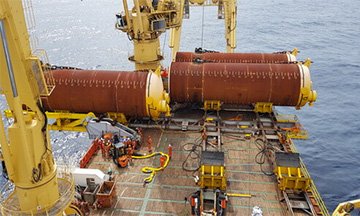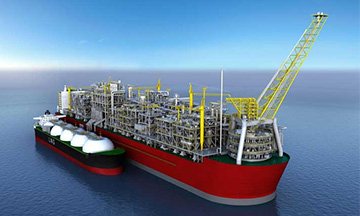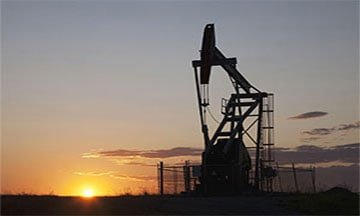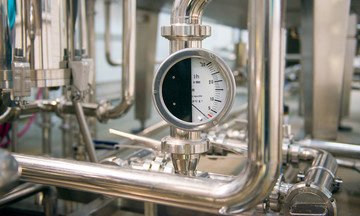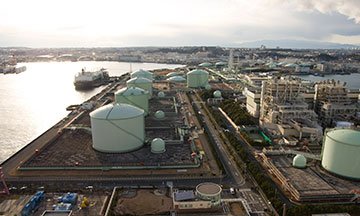Offshore Gas Field Development Planning Program
| Date | Venue | Duration | Fees | |
|---|---|---|---|---|
| 27 May - 31 May, 2024 | Dubai | 5 Days | $4750 | Register |
| 03 Jun - 07 Jun, 2024 | Dubai | 5 Days | $4750 | Register |
| 24 Jun - 28 Jun, 2024 | Amsterdam | 5 Days | $5695 | Register |
| 15 Jul - 19 Jul, 2024 | Dubai | 5 Days | $4750 | Register |
| 26 Aug - 30 Aug, 2024 | Dubai | 5 Days | $4750 | Register |
| 02 Sep - 06 Sep, 2024 | Dubai | 5 Days | $4750 | Register |
| 09 Sep - 13 Sep, 2024 | Seoul | 5 Days | $5350 | Register |
| 14 Oct - 18 Oct, 2024 | Dubai | 5 Days | $4750 | Register |
| 18 Nov - 22 Nov, 2024 | Dubai | 5 Days | $4750 | Register |
| 16 Dec - 20 Dec, 2024 | Dubai | 5 Days | $4750 | Register |
Course Overview
How is an oil field developed?
Discovery of an oil and gas field is the commencement of a new process. Almost immediately, we want to know what its potential is and what the development options are in terms of subsurface plans and facilities. To answer these questions, a systematic approach is required to evaluate the discovery, forecast the reservoir behaviour under expected producing conditions, and design the optimum facilities to meet forecasted production.
A petroleum development project typically is divided into several major phases: exploration, field appraisal, feasibility study, project implementation and field production. Offshore developments have a longer schedule before they enter on stream. Reserves and well productivity need to be substantially higher for offshore projects. This is in order to cover the greater capital expenditure and operating cost.
What is a field development plan?
The Zoe training course will provide you with the most advanced knowledge and expertise to master the science of off-shore gas field development planning. The training with practical case studies and the latest theoretical information will empower you to take responsible and senior positions at a government and multinational organisation with huge potential for growth within the organisations. It will enhance prospects for better opportunities outside your current organisation as well.
Course Objectives
The key objective of this program is to equip professionals with:
- Appreciation and understanding subsurface aspects, reservoir and fluid characterization, both from a geoscience and engineering point of view
- The knowledge of the type of subsurface engineering studies required to plan the development and exploitation of an offshore gas discovery, covering well and reservoir aspects
- Understanding of various facility types used for offshore gas development and how environmental factors and the reserves level will influence the optimum choice of development
- Understanding the importance of working as an integrated team, including interfaces with facilities engineering and commercial areas
- To develop technical knowledge related to gas fields management and handling
Training Methodology
The training courses at Zoe Talent Solutions are updated according to the academic and professional background of the audience for each batch respectively.
The contents of the course are reviewed thoroughly before each session. On top of that, there are certain updates to the course in the pipeline to keep it up to date. A professional from the relevant field with years of experience in practical knowledge conducts the training session using details audio and video presentations to ease the learning process.
The trainees are continuously engaged in group activities and individual and group projects to give them on hand knowledge.
Furthermore, case studies and real-life scenarios, following the Learn-Apply-Review model are taught to trainees to improve their analytical abilities and practical knowledge.
Organisational Benefits
By professionals undertaking this course, their respective organisations will derive the following benefits:
- Equipping professionals with an understanding of offshore exploration
- Proper knowledge of International Law and National law to operate abroad and on international territory
- Advantage of simulations and algorithms to rectify and confirm data
- Application and implementation of advanced concepts and modern equipment to increase efficiency and productivity within the organisation
- Regular training of employees on best practices and advancements in the field of off-shore petroleum engineering
Personal Benefits
Delegates nominated for this Zoe training course will gain the following benefits:
- In-depth understanding and knowledge of all critical aspects of off-shore petroleum engineering
- Enhanced analytical skills to effectively and accurately process data in resource exploration
- Increased confidence and skillset to train other professionals on best practices and concepts related to off-shore petroleum engineering
- Better ability and understanding to enhance or change processes and systems to increase organisational growth and development
- Increased understanding and knowledge of advanced techniques and concepts related to managing natural resources, enabling one to assume higher responsibilities in off-shore petroleum engineering in any organisation, thereby increasing avenues for career growth and progression
- Better understanding and analytical as well as strategic skills to work with different systems and choose appropriate models for exploiting natural resources
- Enhanced foresight to predict challenges and risks and make provisions to mitigate the negative impact of these on one’s organisation
- better risk and threat assessment to avoid any disaster or hazard on site
- Increased skill set and capabilities to actively take part in research, exploration, extraction and managing natural fields
Who Should Attend?
This course has been designed for:
- Subsurface (geoscience and engineering) technologists
- Well construction engineers and
- Facilities engineering team members involved in gas field development studies
- Individuals who are planning to join an integrated team involved in planning for offshore gas development
Commercial disciplines, project managers and managers will also benefit from attending this course
Course Outline
Module 1: Project Management
- Project plan
- Organisational structure
- Project control schedule
- Project control budget
- Project procedure manual
Module 2: Activities to Reach the Gas
- Understanding of environment
- Understand the reservoirs and quantify uncertainties
- Understand the drilling
- Propose options and examination
- Commercial analysis
Module 3: Integrated Field Development Plan Team
- Identification and assessment of opportunities
- Field development planning
- Feasibility study
- Responsibility of each member
- Target identification
- Main causes of failure
- Reservoir standard model
Module 4: Acquisition and Analysis of Data
- Integrated database
- Three Levels of database
- Database structure
- Revision and validation
- Project data analysis
- Lesson learning report
Module 5: Development of Robust Model
- Application of typical reservoir model
- Major tasks of reservoir engineers
- Reservoir stimulation, geological and dynamic model
- Reservoir characteristics, rock and fluid properties
- Basic petroleum engineering concepts
Module 6: Reservoir Modelling
- Simplified geological structure
- Basics of reservoir modelling
- Initialization of reservoir model
- Validation of reservoir model
- History match
- Saturation and pressure history
- Original hydrocarbon in place (OHIP)
- OHIP estimation by volumetric approach
- OHIP estimation by material balance technique
- Reserves estimation when reservoir model is not available
- Recovery factor
Module 7: Reserves Classification
- Proven reserves
- Proved developed reserves
- Proven undeveloped reserves
- Production forecast
Module 8: Reservoir Driving Mechanisms
- Depletion and solution gas drive
- Gas cap drive
- Water drive
- Water flooding
- Mobility ratio, heterogeneity, gravity
- Combination drive
Module 9: Architecture
- Vertical equilibrium, Vertical displacement and effect of gravity forces
- Well type by shape
- Drilling well
- Completion plan and strategy, single and multizone completion
- Vertical, J-shape, horizontal, multilateral
Module 10: Consolidation of Reservoir Development Scenario
- Depletion Strategy
- Production strategy
- Lifting strategy
- Well architecture strategy
- Perforation strategy
- Completion strategy
- Surface facilities strategy
Module 11: Economic Evaluation
- Economic Evaluation of the project
- Input data for evaluation
- Criteria for economic evaluation
- Key parameters
- Business cases based on analysis
- Economic evaluation procedure
Module 12: Uncertainty Analysis
- Uncertainty Vs risk
- Upstream industry uncertainty
- Technical uncertainty
- Economical uncertainty
- Measurement of uncertainty
- Cumulative probability
- Density function probability
- Uncertainty quantification by reservoir model outcomes
- Uncertainty quantification by a stochastic process
- Risk and opportunity by uncertainty
- Benefits of uncertainty assessment
Module13: Risk Analysis
- Possible Risks
- Management of risks
- Risk matrix
- Step by step analysis
- Risk mitigation procedures
- Health, safety and environmental standards
